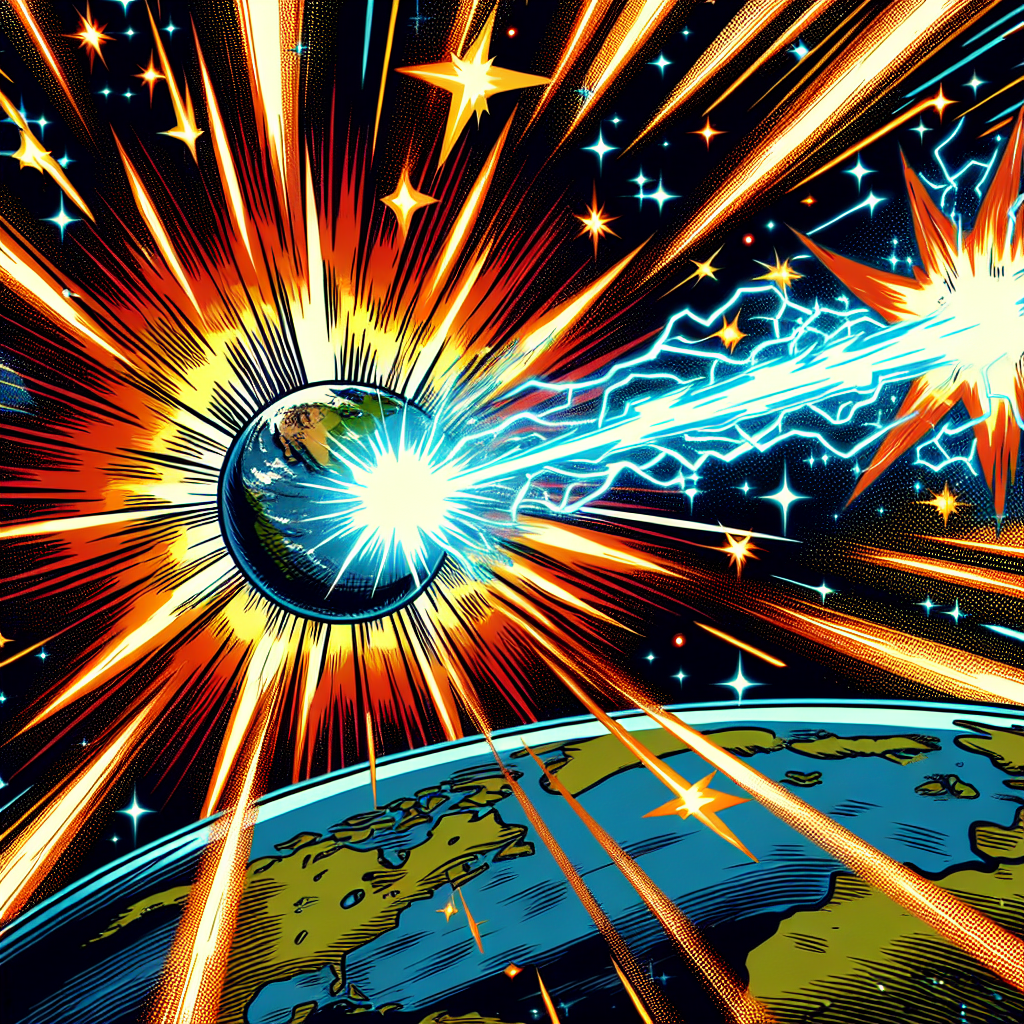A quasar is an incredibly luminous galaxy that outshines an entire galaxy of stars. Imagine a cosmic lighthouse, beaming energy across the vast expanse of space. Quasars are powered by supermassive black holes at the hearts of galaxies, which consume surrounding material and convert it into enormous amounts of energy.
The "jet" in question is one of the most fascinating aspects of quasars. These jets are narrow beams of energy that shoot out from the poles of the black hole, propelled by intense magnetic fields and relativistic particles. Imagine a cosmic garden hose, blasting energy across billions of light-years.
If a quasar were to aim its jet directly at Earth, the consequences would be catastrophic. The energy output of a quasar is so immense that it would overwhelm our planet's defenses. Imagine being in the path of a hurricane, but instead of wind and rain, you're facing a torrent of high-energy particles and radiation.
The first effect would be a massive increase in high-energy radiation, including X-rays and gamma rays. These forms of radiation would penetrate deep into our atmosphere, causing widespread damage to living organisms and electronic systems. It would be like being exposed to an intense, cosmic-sized X-ray machine.
As the jet's energy interacted with our atmosphere, it would create a cascade of secondary particles, including muons, pions, and other subatomic particles. These particles would interact with the atmosphere, causing a chain reaction of ionization and excitation, leading to spectacular, yet deadly, atmospheric effects.
One of the most striking consequences would be the spectacular light show in the skies. The energy released by the quasar's jet would ionize the atmosphere, creating a breathtaking display of aurora-like lights, but on a colossal scale. Imagine the northern lights, but instead of gentle, swirling patterns, you're witnessing a blazing, cosmic spectacle that engulfs the entire sky.
However, this celestial light show would come at a terrible cost. The energy released would also cause widespread ozone layer depletion, leading to a significant increase in harmful ultraviolet radiation reaching the Earth's surface. This would have devastating effects on terrestrial ecosystems, causing widespread mutations, cancers, and other serious health issues.
The quasar's jet would also have a profound impact on our planet's magnetic field. The intense magnetic fields generated by the quasar would interact with our own magnetic field, causing it to fluctuate wildly. This would induce powerful electrical currents in our power grids, leading to widespread blackouts and disruptions to modern society.
In addition, the quasar's energy would have a profound impact on our climate. The massive injection of energy would lead to a significant increase in global temperatures, causing Melanesian-style hurricanes and unprecedented weather patterns. Imagine the most intense hurricanes, droughts, and wildfires, all occurring simultaneously, and you'll get an idea of the chaos that would ensue.
One of the most disturbing aspects of a quasar's jet is its potential to alter the fabric of space-time itself. The intense energy released by the quasar would warp the fabric of spacetime, creating gravitational waves that would ripple across the cosmos. Imagine a cosmic "tsunami" of gravity, affecting the very fabric of reality.
In the aftermath of such an event, the very survival of humanity would be in jeopardy. The effects would be so severe that it would reset the evolution of life on Earth. The quasar's jet would be an extinction-level event, wiping out entire species and ecosystems, leaving behind a barren, irradiated landscape.
It's fortunate, then, that quasars are relatively rare in the universe, and the likelihood of one aiming its jet directly at Earth is extremely low. Nevertheless, contemplating the consequences of such an event serves as a humbling reminder of the awe-inspiring power of the cosmos and the delicate balance of our planet's ecosystem.

Popular Space Questions
Find answers to the trending space questions being asked by our community on social media.
- How many galaxies are there in the universe?
- What would happen if a rogue planet entered our solar system?
- How far is Pluto from Earth?
- How many planets are in the Milky Way?
- How big is the Earth?
- How many planets are in our solar system?
- What are the planets in order?
- What would happen if a pulsar's beam hit Earth?
- What if we found a way to manipulate gravity?
- How big is the universe?